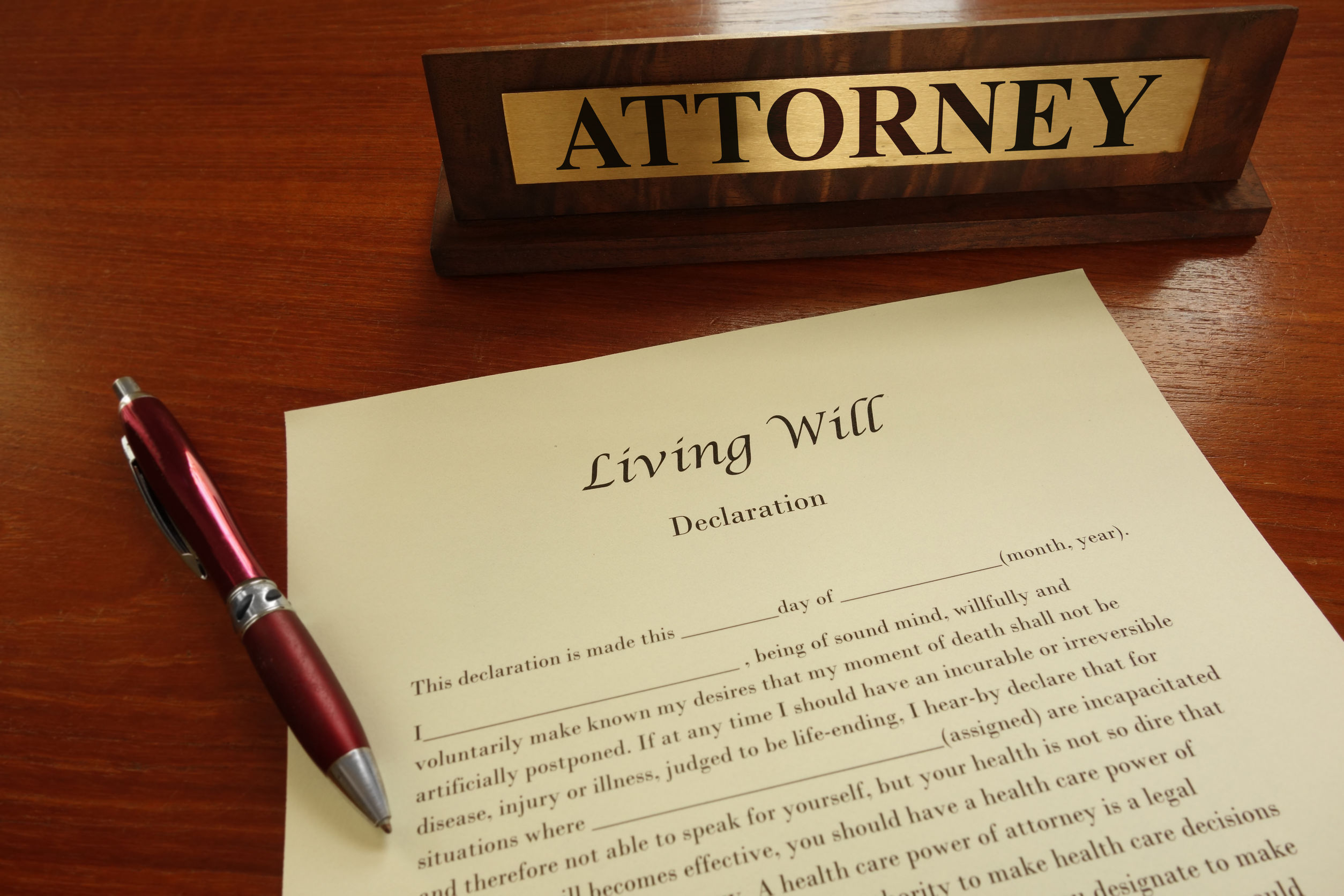When people begin planning their estate for late-life or end-of-life needs, they are often bombarded with options for financial products. While your estate planning attorney isn’t strictly a financial advisor and generally doesn’t offer financial products directly, they can play a vital role in helping you decide on the best products for your needs.
You need to understand two important things before meeting your attorney. First, you need to know what your goals are, what you want to achieve with these products. Second, you need to understand your legal and financial services landscape to gain the understanding you need for your future planning.
Let’s take a look at how an elder law attorney should be a vital part of your financial planning and examine the specific financial products with which they can help. We’ll then focus specifically on the benefits and drawbacks under the Pension Protection Act for those aged 65 or older who have significant assets, as well as options for those who aren’t eligible for this act.
Financial and Retirement Planning
Most attorneys will tell you that they can handle your estate and retirement planning needs. They will claim they can do it all. Attorneys, for the most part, function like general practitioners. That is, they have a broad range of legal knowledge, without actually specializing in one specific area. Consider, though — if you get a cancer diagnosis, do you go to a general practitioner or do you seek out a specialized oncologist? If you have heart disease, do you go to a general practitioner or a cardiologist?
Attorneys are the same. While there are general practitioners who are great for everyday legal advice and needs, you should seek out a qualified Elder Law Attorney for your end of life planning. Elder law attorneys are specialists in the specific legal and financial circumstances faced by those over the age of 65. They are experienced in handling those situations that are unique to older people, who have accumulated assets and now are looking to protect and distribute them when they pass on.
Who Should Have an Elder Law Attorney?
Elder law attorneys, since they are focused on estate planning and the unique legal situations faced by retirees, are specialized in the practice of law for those over 65. Besides being at retirement age, certain other factors qualify you for having such a lawyer in your corner. If you are over 65 and any of the following apply, you may consider securing the services of an estate planning lawyer.
- You have over $400,000 in accumulated assets.
- You have adult children.
- You have a spouse who will have financial troubles paying for nursing home care.
- You have a disabled adult child.
A Dangerous Middle Ground

The truth is, most people face something of a dangerous middle ground when it comes to their end-of-life finances. Few people consider what it takes to fully plan for your late-life needs. Even those with a solid retirement fund and those who have good estate plans, wills and trusts, don’t consider what will happen if they need ongoing long-term care.
Consider, if you have $2 million or more in assets, you can likely do whatever you want, and you’ll be able to pay out of pocket for your necessary care. If you have $800,000, on the other hand, you may think you have plenty of money, but you can quickly learn that while you have money to pay for care, that’s all you can afford. You won’t have assets to leave your children or to uphold the lifestyle you like.
This creates a dangerous middle ground into which most people fall. They’re not poor, or they weren’t before the need for long-term care arose. Then, when the unexpected happens and they find themselves in a nursing home or assisted living facility, their funds are quickly drained.
Alzheimer’s and Dementia
Nobody wants to face the possibility of being afflicted with Alzheimer’s or dementia. Yet, according to an annual report from the Alzheimer’s Association, over 5.7 million people in the United States alone are afflicted with this illness. All around the world, almost 44 million people suffer with this illness, or a related dementia illness. Worse, only 25% of those who have Alzheimer’s have actually been diagnosed. It’s estimated that 10% of Americans over the age of 65 have this illness, and over a third of those over the age of 85 have it.
While dementia illness is most commonly found in Western Europe, North America isn’t far behind. These conditions are the top cause worldwide for late-life disability. The costs of these conditions are incredibly high — in the year 2017 alone, Alzheimer’s cost the United States $259 billion, with estimated costs by 2050 ranging to $1.1 trillion. It is the only illness among the ten leading causes of death in the U.S. that can’t be prevented, cured, or slowed.
These numbers are staggering, and yet, they barely begin to touch on the costs of nursing home care. After all, there are many other reasons why one might find themselves in a care facility besides dementia.
Nursing Home Care by the Numbers

It’s also estimated that over half of all Americans will need nursing home care before the end of their lives. This number has increased tremendously from the previous estimate of 35% by the United States Department of Health and Human Services. To be fair, it includes short stays of three weeks or less, but still, even short stays can be quite expensive.
Further, at least 5% of those in nursing homes will spend over 1,500 days there and will spend more than $50,000 on such care. The risks for married couples are even higher, and as the baby boomer generation begins to age into these costs, it will get worse. Many people are shifting toward shorter stays for financial reasons, but this can lead to dangerous costs when those who are reasonably in need of care from long-term facilities can’t afford it.
Estate and Medical Planning for Those With Alzheimer’s
When your loved one is diagnosed with Alzheimer’s disease, it’s devastating and confusing for everyone involved. It’s vital that you take the right steps to plan for the future right away, while they still have their faculties intact. Take the important steps needed to be sure that their wishes will be observed and their medical, financial and emotional needs met.
A range of financial steps and products are needed to make sure everything is covered. Set up a power of attorney to be sure that someone is able to take care of their financial and medical needs. Watch out for fraudsters and scammers looking to take advantage of a vulnerable time. Get their overall estate plan in place to create as ironclad a protection as possible, so they can live out their days in comfort.
Top Goals of Seniors

Most seniors have three major goals that they want to see fulfilled before they pass away. First, they want to leave something behind for their children. Second, they want to sustain their quality of life, which they have worked hard to establish throughout their lives. Finally, they want to have their needs and those of their spouses covered.
When you approach financial planners with these goals, you’re going to get hit with a wild number of options that can be hard to sift through. First, it’s important to stay focused. Prioritize your goals by asking yourself, “If I could have only one of these things, which would I choose?” This will form the foundation of your financial plan.
This is also where your elder law attorney can come into the picture. If you have a good retirement planning attorney, they won’t have a vested interest in selling you specific products. Rather, they will provide a recommendation based on achieving your goals and needs. It could involve creating a specific kind of trust. It could be a recommendation to purchase annuity insurance. It could include a range of other approaches.
Clearing the Insurance Company Confusion
Dealing with the insurance company can be infuriating and confusing. They almost never make things easy to understand. The insurance company might make demands of you, like asking you to move six-figure sums from an IRA, which you’ve worked hard to understand, into some product you’ve never even heard of, let alone can comprehend.
Dealing with insurance companies is another reason you need an Elder Law attorney. While they aren’t in the business of selling product, they are licensed to do so, and as a licensed representative, they can explain to you exactly how things work. They become licensed representatives of companies not so they can sell you product, but so they can help you to understand what your options are and sift through the confusion to find the one that’s just right for you.
Because of this, your attorney may be a far better resource than your financial planner. Your planner might not even have a full and thorough understanding of the products between which you are trying to choose, but it’s likely your attorney does.
Why an Elder Law Attorney Is Important

Most people who have accumulated over $400,000 in assets by the time they reach the age of 65 have both a financial planner and an attorney that they trust. Comparatively few of these people, however, have an elder law attorney. In many cases, this is because they may be uncomfortable bringing someone on board that they don’t know, when they already have developed a deep trust with their team.
Still, your existing attorney and financial advisor don’t have the familiarity with the intricacies of elder law and retirement planning that you need. While any attorney can fill out legal documents, not all have experience with your specific needs. They might be strong generalists, dealing with everything from divorce to DUI, but no specialty in late-life financial planning.
Because of this, it’s vital to talk to a local elder law lawyer. You need help from someone who concentrates on elder law, who only performs this specific practice. They will have access to the products and services your financial planner and general attorney don’t have, and probably haven’t had the time to explore or with which to become familiar.
Working with an elder law attorney can prevent an unintentional mess with your estate plan. They can help ensure your long-term care is covered, as well as avoid probate when you pass on, protect assets and cut tax liability, and protect your beneficiaries.
Finding a Good Elder Law Attorney
You can often start your search for an elder law attorney just by searching for one in your town online. Don’t just use Google or a regular search engine, though. Use sites like Avvo which are specialized in finding attorneys. Check reviews and customer testimonials. Talk to friends and see if you can get recommendations.
It’s also important to ask the right questions. Make sure that the attorney you choose is certified in elder law with the National Elder Law Foundation. Find out what their elder law focus is, and in what area the majority of their clients and cases lie. Ask if they are a member of any professional organizations, such as the National Academy of Elder Law Attorneys or the Special Needs Alliance.
Ask what kinds of programs they have to help educate others about elder law issues, whether it’s an ongoing blog on their website, a legal resource center or other approaches. Finally, ask about their knowledge of Medicaid and Medicare.
The Qualities of a Good Elder Law Lawyer

The best elder law lawyers have a number of qualities in common. First, they only practice elder law. They do not generalize. They will offer educational seminars where you can learn about the different options available. They will not charge for consultations. Usually, after a seminar, they give the opportunity to make an appointment when you can bring your financials and get initial advice at no cost.
Finally, good elder law attorneys won’t charge you by the hour, nor will they take you on as a client if they don’t believe they can save you money. Rather, they work based on the amount of money they can save you. If they don’t believe they can save you at least ten times what you will pay them, they may not take you on, or you may decide they may not be the right option for you.
Even at a 10% fee, this can result in some level of sticker shock. Just remind yourself that the average cost for a stay at a nursing home can top $10,000 every month, and you’ll see that the fees aren’t quite so bad. In the end, however, this is why it’s recommended that those who have over $400,000 in assets work with an elder law and estate planning attorney.
What Will an Elder Law Attorney Do?
Elder law attorneys perform a wide range of important services to ensure your retirement plan is in great shape. Firstly, they will update your existing documents. When you turn 65, any powers of attorney, trusts and wills should be updated. This is because those that most people establish early are not durable and won’t hold up should you become incapacitated.
A durable power of attorney does not terminate if you become incapacitated. This is to provide extra protection, as normal powers of attorney terminate if the Principal is rendered unable to act, in cases like dementia. The biggest and core difference between a normal and a durable power of attorney is that the durable version includes specific wording that states it will survive in such a case.
After making sure your documents are up to date, the attorney will establish what your goals are, including those discussed above, as well as how you want to be taken care of and what level of income you’ll need to meet those goals. They will then make recommendations based on your discussion, which may involve creation of a trust to protect your assets. They can also help you to identify and apply for government benefits such as Veterans Aid and Attendance.
Other recommendations can include insurance and annuities. In the end, an elder law lawyer is a sort of hybrid legal professional and financial advisor. They are to attorneys the kind of specialist that a brain surgeon or cardiologist is to the medical field, and it is the only type of law they practice.
Community Services vs. Elder Law Services

Community resources sometimes offer residents to perform many of these services for free. Don’t choose this option in lieu of an elder law and estate planning lawyer. While a community service may well be able to fill out the paperwork, and possibly even help you to qualify for Veterans benefits, Medicaid or the like, they may leave out important details that will fail to protect your assets and could actually cause you to lose money.
You could waste time with this process and not get all the benefits due to you under the law. Worse, you may lose money for every day that the benefits aren’t granted. A good, specialized attorney will make sure this won’t happen and can help you avoid critical long-term care mistakes.
Helping You Develop a Stream of Income for Long-Term Care
One of the most important duties of your estate planning attorney is to help you choose the right financial products to enable you to develop a reliable stream of income for your long-term care needs. If you only talk to a financial planner, you’ll almost always be told to avoid annuities, that they’re bad. While this isn’t necessarily always true, it is the case that for most people they are not the answer to developing an ongoing income to help ensure that care bills are covered.
An Elder law attorney can help you to understand financial products, including annuities, better. They can guide you towards those products that are beneficial, and help you avoid those that are not. They will explain to you why a given financial option may be right or wrong for your retirement plan, so you can best protect your assets.
The High Costs of Home Healthcare
Many middle-aged couples approaching retirement are justifiably concerned about the devastating effect that long-term care expenses can have on their financial well being into their golden years.
The first step is to determine where you want to receive your care. The vast majority of people receive long-term care in their home. This can actually create a surprising problem. Out-of-pocket costs for in-home healthcare can run up to $10,000 per month, and even more in some cases. This means that in under two years, you can go through well over $200,000. This means you’ll need to liquidate assets.
For many people, this means unloading IRA savings, CDs, existing annuities and other savings. What if there were a way you could generate a nice nest egg which would allow you to pay for this care tax free, without draining the financial security that you’ve worked so hard to put together? There is, and it’s a federal law that not enough people know exists, let alone use.
The Pension Protection Act

The Pension Protection Act, or PPA, is a little-known Federal law that is for many people the one thing that can make a difference between having all the options available for long-term care that you need and going broke in a nursing home. The biggest benefit of this act is that it can allow you to create a large pool of cash which you can use to pay for long-term care, entirely on a tax-free basis! You’ll need to know how to use this law, however, and make it work to your benefit.
Consider, for example, that you’ve created an annuity that will allow you to have $200,000 in reserve in case you get sick. You can then burn this annuity and have nothing left, or, if you choose and structure the right annuity that conforms to this Pension Protection Act, you can create a tax-free pool of money that totals almost $1 million. That’s a huge safety net and nest egg, which can be used for in-home care, nursing home care or assisted living.
Purchasing Long-Term Care
Under the PPA, consumers have several options for purchasing long-term care (LTC), and they gain significant tax incentives, as well as flexibility, for people who already have assets that are set aside for LTC. The interest gained from certain annuity accounts can be used tax-free under this act in order to buy or fund a long-term care insurance policy, be it traditional or hybrid. Only non-qualified annuities can be used in this fashion. Non-qualified annuities are those which were initially purchased with post-tax dollars, as opposed to qualified annuities like IRAs or 403b plans, which were purchased pre-tax.
When you purchase long-term care by paying the premium out of your regular bank account, you get neither deductions nor tax benefits. On the other hand, if you use a non-qualified annuity to make such a purchase, the interest from that annuity can be used on a tax-free basis. You have essentially two options to do this. First, you can use an immediate annuity to make payments, but be sure you only use the interest and not the principal to make these payments. Sometimes, the same company can allow you to purchase both the insurance and annuity together, to simplify matters.
Second, you can make annual withdrawals from a non-qualified deferred annuity that you already have. For example, if you have an annuity that sits at $120,000, which you originally purchased at a cost of $100,000, you have $20,000 in deferred gains. You can execute a partial 1035 exchange to pay for the LTC each year, tax free.
Alternately, under certain circumstances you can transfer your funds to a hybrid annuity, a relatively new option that is rapidly gaining popularity. Via the 1035 exchange rule, you can exchange non-qualified annuities to new hybrid LTC annuities. When you set one of these up right, you generate zero taxable gains which you can later withdraw on a tax-free basis to cover your LTC expenses.

Finally, the least common option is to use the cash value of life insurance policies to fund LTC policies while still remaining in compliance with the PPA. This is also done using an IRS-approved 1035 exchange. Your LTC insurance company must be able to accept funds from the life insurance agency for this to work, whether it’s as a lump sum or via systematic withdrawals. When you approach this option, you need to understand just how it will affect the integrity of the policy.
Like many laws, the Pension Protection Act of 2010 is detailed and complex, and understanding it requires advice from someone who knows the landscape. It’s important to talk to an estate planning and elder law attorney to learn whether your accounts can be applied to this act or whether other solutions are necessary. Unfortunately, it’s surprising how few financial experts and attorneys are familiar with this act. That’s why you should always ask your attorney if they’re familiar with the Pension Protection Act before moving forward with your late life plans.
Other Solutions
Unfortunately, not all retirement savings are compatible with the Act. For those who have their funds in, for example, an IRA that doesn’t conform to Pension Protection standards, there are still other solutions. The right Elder Law Attorney can guide you toward alternate solutions to keep that cash stream flowing, so you don’t go broke in a nursing home. Alternate solutions might include rolling over your existing accounts into new, more profitable options that can still offer you tax favored status on your monthly fixed income.
For military veterans, for example, there’s a benefit called the Aid and Attendance Pension Benefit. This program can help qualifying veterans receive up to $26,000 per year, tax-free, to help pay for long-term care. Even better, it applies to their spouses as well.
Whether you have existing 401k accounts, annuities, CDs and IRAs, or you’re looking to turn your checking or savings account into a stream of income to keep you solvent during your golden years, an elder law and estate planning attorney is the way to go.
Call an Estate Planning Attorney

The solution to protecting one’s assets if long-term care is needed, is generally not found through an annuity. The goal, rather, is to create additional streams of income that can be used for the purposes of paying for LTC. Many solutions are available to solve this problem, and sifting through them can be confusing and fraught with peril if you don’t understand the landscape.
That’s why it’s vital, before you decide on any products for setting up your estate and finalizing your retirement plan, that you work closely with a respected, experienced, and certified elder law attorney. These legal professionals can help you make the right choices for your retirement funds, keep your will, trust and estate in order, and determine the right kinds of accounts for you. Whether it’s to recommend a deferred or immediate annuity transfer under the PPA or no annuity at all, they have the experience to inform you better than anyone else. They can often educate you in a level of detail your general attorney or financial advisor can’t. They also generally have no incentive to talk you into one product over another, except to save you as much money as possible. Paul Stano has contributed to a book on this very topic: Don’t Go Broke in a Nursing Home, which provides an outstanding overview of these issues to get you started.
If you’re in the Cuyahoga County, OH, area, and you need help from a respected, experienced estate planning attorney, turn to the professionals at the Stano Law Firm. Take some time to explore our website and peruse our blog, which offers many years’ worth of informative and educational articles on all aspects of elder law, then get in touch with us for your free consultation today.








It was really interesting when you pointed out that people are often bombarded with options when they start estate planning. It seems like you would want to find a lawyer to work with in order to know options are going to be the best for you. A lawyer could help you know what to pick based on your unique life situations.